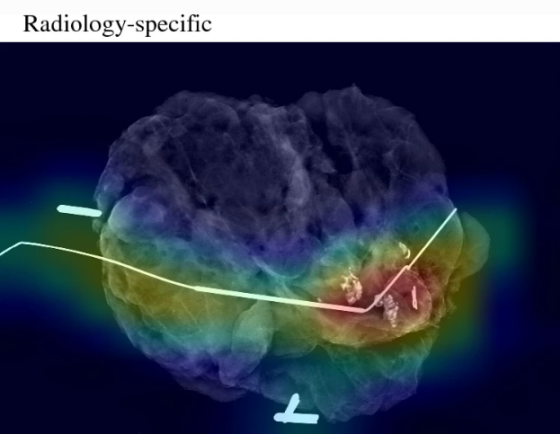AI Model Analyzes Tumors Removed Surgically in Real-Time
Posted on 26 Sep 2023
During breast cancer surgery, the surgeon removes the tumor, also known as a specimen, along with a bit of the adjacent healthy tissue to ensure all cancerous cells are excised. This specimen is then X-rayed using mammography equipment and examined by the medical team to confirm that the problematic area has been removed. Following that, the specimen goes to a pathology lab for a more detailed analysis where the pathologist checks if the cancer cells have reached the outer edge of the removed tissue, called the pathological margin. If they have, it's likely that some cancer cells could still be present in the breast, necessitating additional surgery. This pathology process, however, could take as long as a week post-surgery. Researchers have now created an artificial intelligence ( AI) model capable of predicting whether all the cancerous tissue has been successfully removed during breast cancer surgery.
To train this AI model, researchers at the University of North Carolina School of Medicine (Chapel Hill, NC, USA) used a large number of mammogram images of specimens, which they then matched with the final reports from pathologists. Specimen mammography, or photographing the specimen with an X-ray, can be done right in the operating room. Additionally, the researchers included patient demographic information like age, race, and specifics about the tumor, such as its type and size. Upon assessing the AI model's ability to correctly identify pathological margins, it was found to be at least as accurate as human interpretation, if not more so. Particularly, the AI was either on par with or slightly better than human experts at recognizing positive margins.

The researchers note that this AI model is especially beneficial for patients with denser breast tissue. In mammograms, both tumors and high-density tissue appear bright white, making it challenging to determine where the cancer ends and where the normal tissue starts. The model could also be invaluable for hospitals with limited resources, as they may lack the specialized personnel required to make rapid and well-informed decisions during surgery. While the model is still in its developmental phase, researchers plan to keep adding more images and data from different patients and surgeons. Further validation studies are needed before this AI tool can be clinically implemented. The team expects the model's predictive accuracy to improve as it is exposed to more data related to normal and cancerous tissues and margins.
“Some cancers you can feel and see, but we can’t see microscopic cancer cells that may be present at the edge of the tissue removed. Other cancers are completely microscopic,” said senior author Kristalyn Gallagher, DO, section chief of breast surgery in the Division of Surgical Oncology and UNC Lineberger member. “This AI tool would allow us to more accurately analyze tumors removed surgically in real-time, and increase the chance that all of the cancer cells are removed during the surgery. This would prevent the need to bring patients back for a second or third surgery.”
Related Links:
UNC School of Medicine














